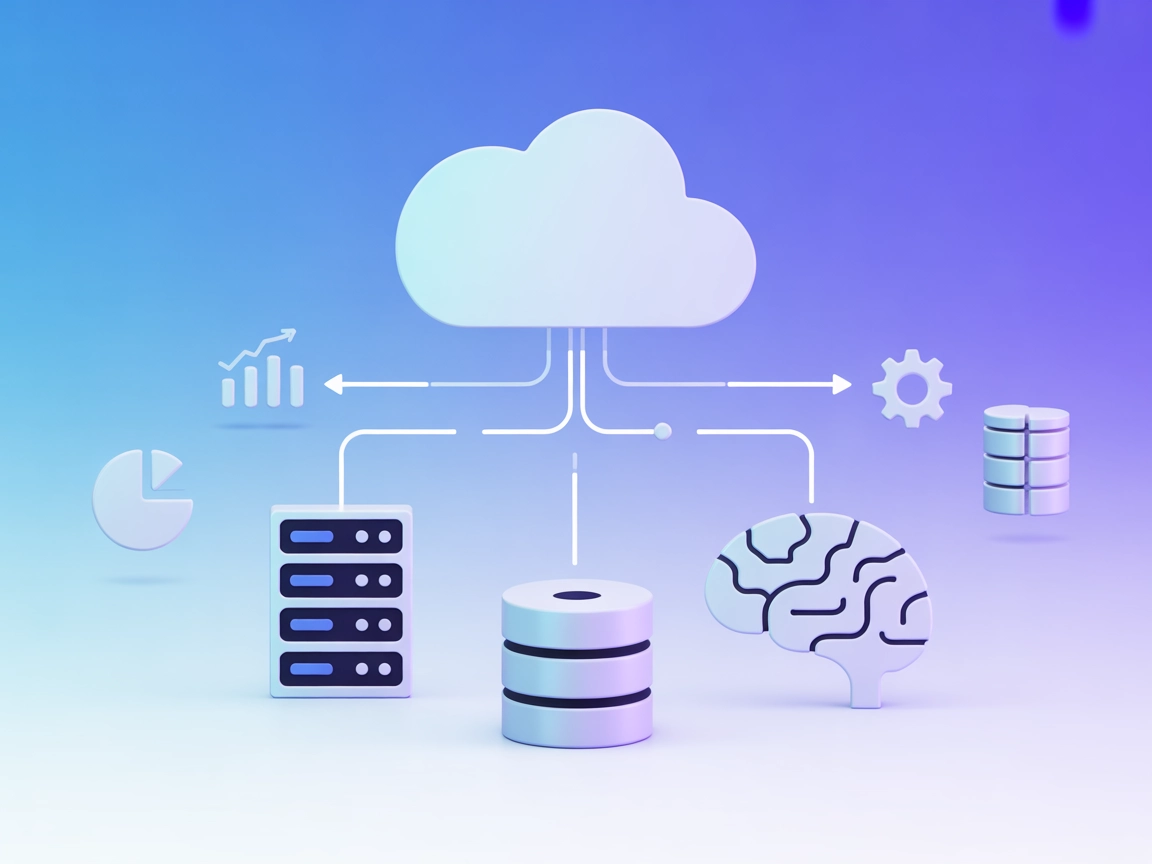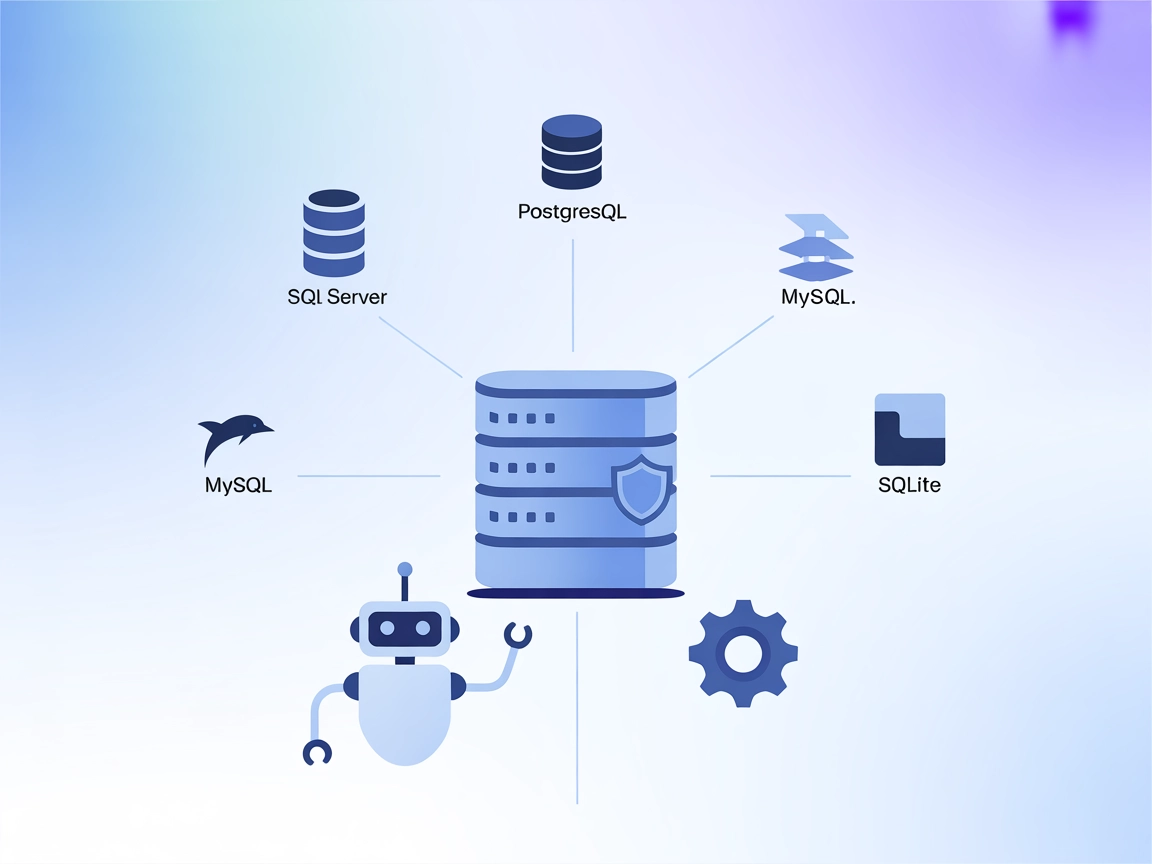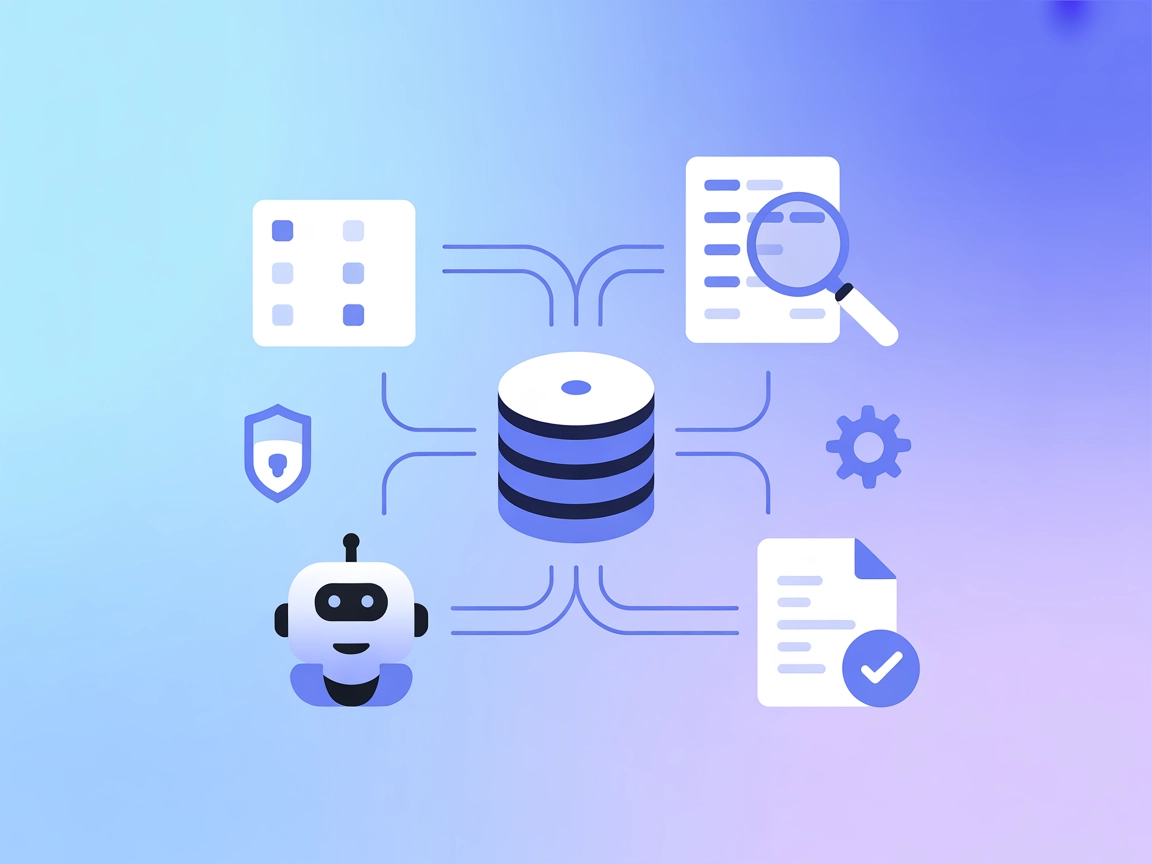
MSSQL MCP Server
The MSSQL MCP Server connects AI assistants with Microsoft SQL Server databases, enabling advanced data operations, business intelligence, and workflow automati...

Connect your AI agents and automation tools directly to major databases with FlowHunt’s MCP Database Server, enabling secure data access and management for context-rich workflows.
FlowHunt provides an additional security layer between your internal systems and AI tools, giving you granular control over which tools are accessible from your MCP servers. MCP servers hosted in our infrastructure can be seamlessly integrated with FlowHunt's chatbot as well as popular AI platforms like ChatGPT, Claude, and various AI editors.
The MCP Database Server is a Model Context Protocol (MCP) server designed to provide seamless database access capabilities for AI assistants and development tools such as Claude. It enables secure and programmatic connectivity with a variety of popular database systems, including SQLite, SQL Server, PostgreSQL, and MySQL. By functioning as a bridge between AI-powered agents and external databases, MCP Database Server empowers developers to perform database queries, manage content, and interact with structured data directly from their workflows or automation pipelines. This integration enhances productivity by allowing routine tasks, such as querying records or updating tables, to be executed efficiently and consistently, thereby improving the ability to build context-aware AI applications.
No prompt templates are explicitly mentioned in the repository or documentation.
No explicit MCP “resources” are detailed in the available documentation or codebase.
No direct list of MCP “tools” is provided in the documentation or server file index.
Database Management
Enables AI assistants or scripts to securely connect to and manage multiple types of databases (SQLite, SQL Server, PostgreSQL, MySQL), supporting operations such as querying, updating, and schema exploration.
Data Analytics and Reporting
Facilitates automated data retrieval and aggregation for reporting purposes, allowing users to ask questions about data stored in various databases and receive structured responses.
Automation Integration
Serves as a backend for workflow automation systems that require real-time database access, such as updating records when certain triggers occur or generating alerts based on database changes.
Application Development Support
Provides backend connectivity for developing AI-driven applications that require dynamic read/write access to enterprise or local databases.
npm install -g @executeautomation/database-server@latest
windsurf.config.json).{
"mcpServers": {
"database-server": {
"command": "database-server",
"args": []
}
}
}
Securing API Keys
Store sensitive credentials using environment variables:
{
"env": {
"DB_PASSWORD": "your_password"
},
"inputs": {
"password": "${DB_PASSWORD}"
}
}
npm install -g @executeautomation/database-server@latest
{
"mcpServers": {
"database-server": {
"command": "database-server",
"args": []
}
}
}
Securing API Keys
Set credentials as environment variables and reference them in configuration.
npm install -g @executeautomation/database-server@latest
cursor.config.json to include:{
"mcpServers": {
"database-server": {
"command": "database-server",
"args": []
}
}
}
Securing API Keys
Utilize environment variables as shown in other examples.
npm install -g @executeautomation/database-server@latest
cline.config.json:{
"mcpServers": {
"database-server": {
"command": "database-server",
"args": []
}
}
}
Securing API Keys
Reference credentials via environment variables as shown above.
Using MCP in FlowHunt
To integrate MCP servers into your FlowHunt workflow, start by adding the MCP component to your flow and connecting it to your AI agent:

Click on the MCP component to open the configuration panel. In the system MCP configuration section, insert your MCP server details using this JSON format:
{
"database-server": {
"transport": "streamable_http",
"url": "https://yourmcpserver.example/pathtothemcp/url"
}
}
Once configured, the AI agent is now able to use this MCP as a tool with access to all its functions and capabilities. Remember to change “database-server” to whatever the actual name of your MCP server is and replace the URL with your own MCP server URL.
| Section | Availability | Details/Notes |
|---|---|---|
| Overview | ✅ | Description provided from documentation |
| List of Prompts | ⛔ | No prompt templates mentioned |
| List of Resources | ⛔ | No explicit MCP resources listed |
| List of Tools | ⛔ | No tool list found in docs or server.py |
| Securing API Keys | ✅ | Instructions for environment variable usage provided |
| Sampling Support (less important in evaluation) | ⛔ | Not mentioned |
Based on the available information, MCP Database Server focuses on robust database connectivity and offers standard setup practices, but lacks detailed MCP prompt, resource, and tool documentation in the public repository.
This MCP provides solid database integration for AI workflows and is well documented for installation and usage. However, it is missing explicit MCP prompt, resource, and tool definitions, which are important for maximizing usability and interoperability in MCP-based environments.
| Has a LICENSE | ✅ (MIT) |
|---|---|
| Has at least one tool | ⛔ |
| Number of Forks | 20 |
| Number of Stars | 63 |
Rating:
Based on the two tables above, this MCP scores a 5/10. It is reliable and open source, with clear setup instructions and meaningful use cases, but lacks explicit MCP prompt, resource, and tool definitions that would significantly enhance its utility and interoperability.
The MCP Database Server is a Model Context Protocol (MCP) server that allows AI assistants and tools to securely connect to and manage databases such as SQLite, SQL Server, PostgreSQL, and MySQL. It streamlines programmatic access for querying, updating, and handling structured data directly from your workflows.
Supported databases include SQLite, SQL Server, PostgreSQL, and MySQL.
Key use cases include database management, analytics and reporting, workflow automation, and providing backend connectivity for AI-driven applications that require dynamic database access.
Always store sensitive information, such as database passwords, as environment variables. Reference these variables in your MCP configuration to keep credentials secure and out of your source code.
In FlowHunt, configure your MCP component with your custom server's transport and URL using the provided JSON format in the system MCP configuration section.
Enhance your AI workflows with secure, direct access to your databases using the MCP Database Server. Power up your automations and context-aware applications with FlowHunt.

The MSSQL MCP Server connects AI assistants with Microsoft SQL Server databases, enabling advanced data operations, business intelligence, and workflow automati...

The MySQL MCP Server provides a secure bridge between AI assistants and MySQL databases. It enables structured database exploration, querying, and data analysis...

The Model Context Protocol (MCP) Server bridges AI assistants with external data sources, APIs, and services, enabling streamlined integration of complex workfl...
Cookie Consent
We use cookies to enhance your browsing experience and analyze our traffic. See our privacy policy.